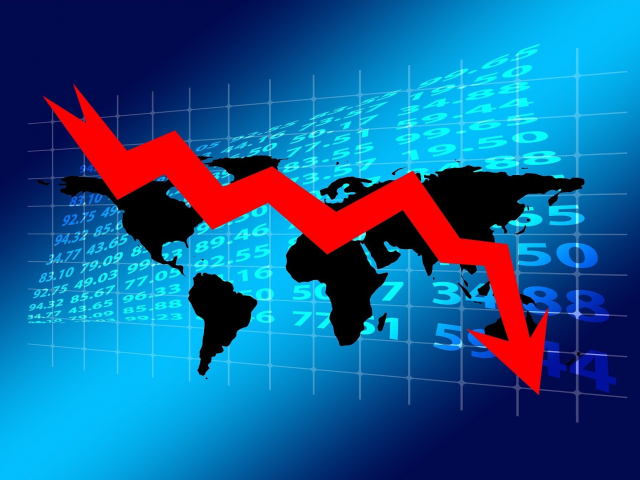
Crisis of political institutions
The crisis of existing political institutions is forecast to grow. Brexit in the UK was the first indication. Later, other countries announced possible autonomy. Analysts expect long-standing problems to get worse and new challenges to come in the current year. Against this background, many states are ready to leave any community that restricts their freedom. New political movements aimed at autonomy will gain strength. At the same time, experts admit that a number of countries will be drawn into the Russia-Ukraine conflict.

Global recession and inflation in several countries
The majority of economists agree that the global economic outlook for 2023 is gloomy. The main economic risks are that the US economy and the world could tip into a recession amid the assertive stance of the Fed and other central banks. At the same time, many believe that a full-blown recession can be avoided thanks to outpacing economic growth in India and China. Nevertheless, surging inflation recorded in a number of countries results in lower demand. The World Bank predicts that inflation will rise to 5% in 2023, which will trigger both a recession and financial crises. Experts fear that the world could experience a series of corporate and sovereign defaults. The latter pose the biggest threat to the EU. This in turn will lead to catastrophic social stratification, a shrinking middle class, and a rise in unemployment. Against this background, enterprises and individuals will have to go bankrupt. According to economists, the year 2023 will be marked by bankruptcy.

Severance of trade ties
The situation is getting worse due to the severance of the existing economic ties that have been built for decades. This problem relates not only to Russia and Western countries but also to a number of other states. The authorities of most countries often build their own economic policy based on national interests running counter to corporate agreements. Now military activities have turned into economic confrontation. However, it is no less destructive than open armed conflict. Experts admit that in 2023, the confrontation between the largest exporting countries and the nations consuming key products will intensify. According to estimates, the current year will be marked by a war of sanctions and currencies, as well as a clash of embargoes and prices.

Key rate and its impact on market
In December last year, the Fed lifted its median federal funds rate forecast for the end of 2023 to 5.1% from 4.6%. However, the rate futures market is still hoping that the Fed will end the cycle of monetary policy tightening. Market participants believe that the regulator will soften its stance this year in order to avoid a hard landing for the US economy. If there is no monetary policy easing, reassessed rate expectations could trigger a collapse in the global and US stock markets.

Higher energy prices
The global economy is also expected to come under pressure from a rise in commodity prices driven by a decline in global reserves of energy and metals. Such a scenario will put the world on the brink of stagflation. The main risks in the hydrocarbon market are a combination of factors such as a recession in the EU, virus curbs in China, as well as the current economic situation in the US that allows the Fed to keep monetary policy tight. If the US makes concessions to Iran and Venezuela, this will add to pressure on Brent and Russian Urals oil prices. This in turn will hurt global export revenues and become an additional devaluation factor for Russia. If this situation persists in the long run, financial stability will be in question.
 Deutsch
Deutsch 
 Русский
Русский English
English Bahasa Indonesia
Bahasa Indonesia Bahasa Malay
Bahasa Malay ไทย
ไทย Español
Español Български
Български Français
Français Tiếng Việt
Tiếng Việt 中文
中文 বাংলা
বাংলা हिन्दी
हिन्दी Čeština
Čeština Українська
Українська Română
Română
